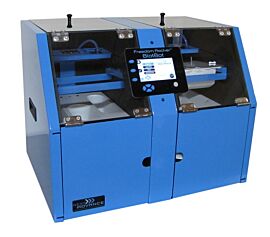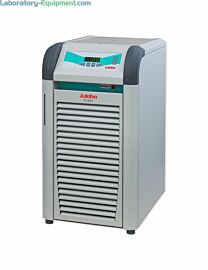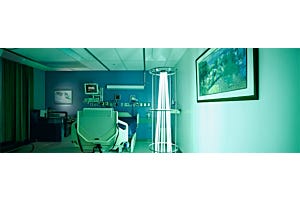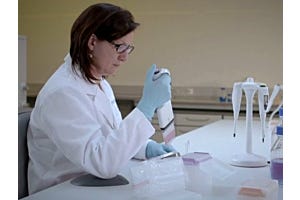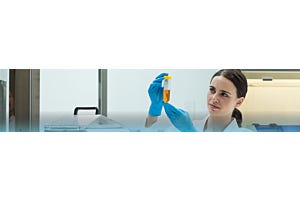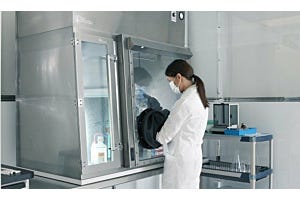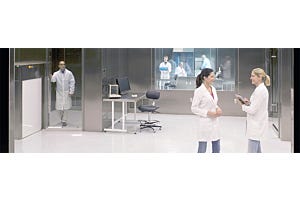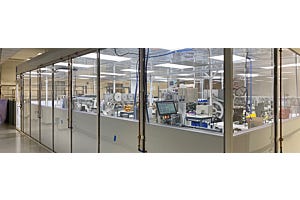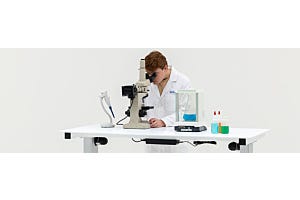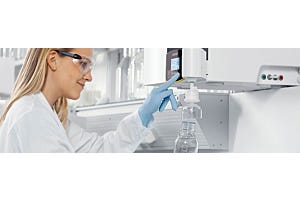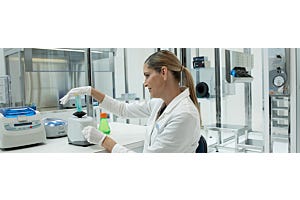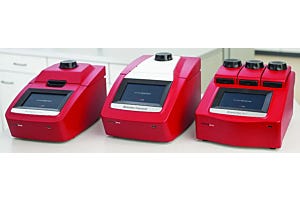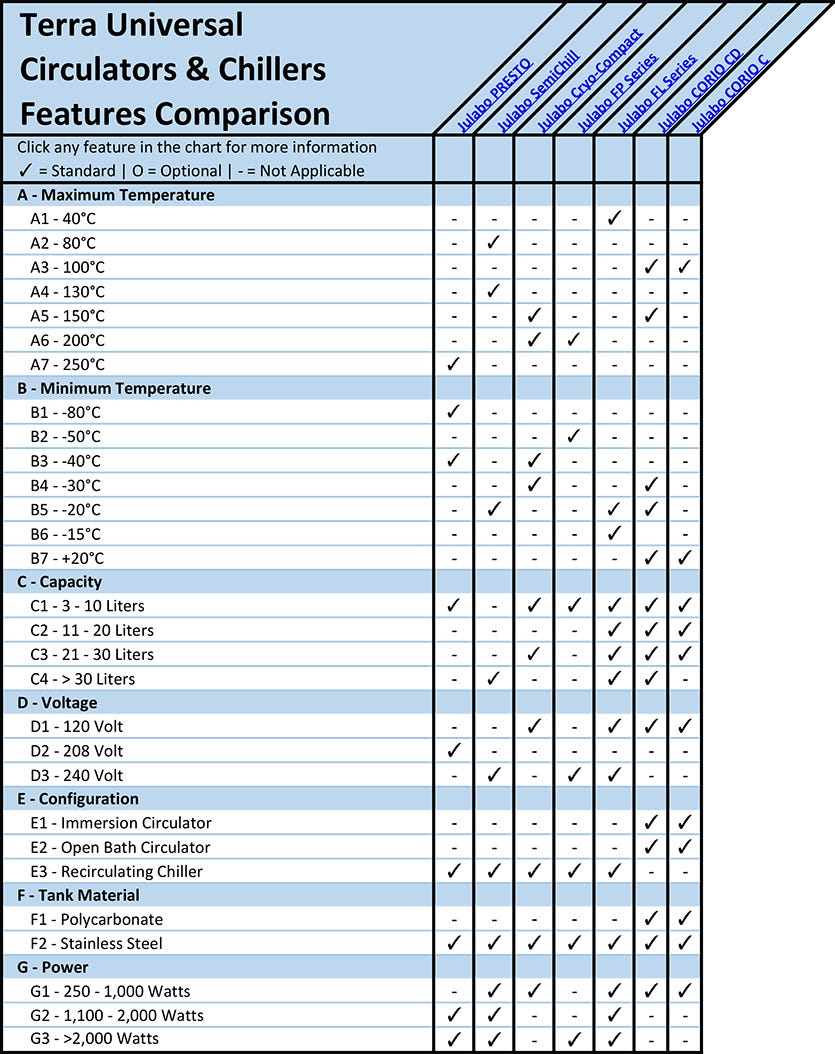
What Does a Lab Circulator Do?
Laboratory circulators and chillers precisely control the temperature of deionized water, bath fluid, or PH-neutral buffer for delivery to integrated or external water baths, analytical instruments, incubators, and wet processing stations.
What Is A Laboratory Circulator Used For?
Lab circulators, common in life science research, drug discovery, material testing, wafer production, and wet chemistry, are used to cool or chill samples, thaw reagents or cell media, and supply temperature-controlled water to external equipment.
Open vs Enclosed Lab Recirculators and Chillers
Lab circulators and chillers include a fluid reservoir connected to a cooling or heating system regulated by a digital or analog controller. The integral reservoir, or water bath, may be open for easy access or enclosed by a gable cover to prevent heat loss. Certain circulators include a pump to deliver water to external equipment, such as refractometers, photometers, or viscometers.
What Is A Laboratory Immersion Circulator?
Immersion circulators are handheld systems designed to clamp onto water baths to regulate bath temperature.
Immersion circulators include a cooling or heating coil, integral pump, and digital or analog controller to regulate temperature and flow rate.
What is the Benefit of an Immersion Circulator Bath?
Immersion circulators are economical alternatives to lab circulators or chillers, but do not include integral water baths and provide limited flow rates and cooling/heating capabilities.
A - Lab Circulator Maximum Temperature
(back to chart)
Laboratory circulators and chillers include heating systems to precisely control the temperature of the water, buffer, or bath fluid.
What is the Average Lab Circulator Peak Temperature?
Lab circulators commonly heat fluid to 150°C.
Julabo’s PRESTO circulators can achieve temperature set points up to 250°C. Common applications for heating circulators include food stability testing, medical device quality analysis, and forced aging studies.
B - Lab Chiller Minimum Temperature
(back to chart)
What Lab Chiller Applications and Uses Are Most Common?
Applications for lab chillers include cell freezing, blood banking, and pour point determination of petroleum products.
What is the Lowest Achievable Lab Chiller Temperature?
Laboratory chillers, or refrigerated circulators, include cooling coils to chill bath fluid or lab-grade water. Lab chillers commonly cool fluid down to -20°C.
Julabo’s PRESTO circulators can maintain temperatures down to -80°C.
C - Lab Circulator Capacity
(back to chart)
Lab circulator capacity refers to the volume of liquid safely stored and processed by the system.
Lab Benchtop Chiller Capacity
Julabo’s Cryo-Compact chillers are low-throughput benchtop chiller systems that accommodate fluid volumes under 10 liters.
Free Standing Lab Circulator Capacity
Julabo’s FL Series circulators are high-throughput, free-standing systems that accommodate fluid volumes up to 50 liters.
D - Voltage
(back to chart)
120-volt connections are suitable for standard laboratory power outlets in the United States, Canada, Mexico, and South America.
208-volt or 240-volt connections, common in Mainland Europe and throughout Asia, require less current (amperage) and smaller conductors than equipment designed to operate at 120-volt.
E - Lab Circulator Configuration
(back to chart)
E1 - Immersion Circulator
Immersion circulators, like Julabo’s CORIO C Series, are placed within external water baths to mix and precisely control the temperature of the bath fluid. Immersion circulators are more cost-effective than benchtop circulators and more flexible: one immersion circulator can control multiple water baths within a single lab, given the baths aren’t operated simultaneously. However, immersion circulators cannot achieve the flow rates and temperature ranges of a benchtop circulator.
E2 - Open Bath Heating Circulators
Open bath circulators, like Julabo’s CORIO CD Series, include an integral, exposed water bath regulated by a digital controller. Open bath circulators provide easier sample access than enclosed bath circulators but may be prone to heat loss or larger temperature fluctuations. Common applications include temperature control of measurement cells, heating glassware, and material testing.
CORIO™ CD Refrigerated/Heating Circulators by Julabo
CORIO™ CD Heating Circulators by Julabo
E3 - Recirculating Chiller
Recirculating chillers contain enclosed water baths, cooling and/or heating coils, and digital control systems. Recirculating chillers include pump systems to deliver fluid to external equipment, such as wet processing stations, water-jacketed incubators, photometers, and refractometers. More expensive than immersion or open bath circulators, recirculating chillers provide large bath capacities, higher flow rates, broader temperature ranges and tighter set point tolerances.
F - Lab Bath Tank Material
(back to chart)
F1 - Polycarbonate Lab Bath
Transparent polycarbonate baths are more cost-effective and provide better sample visualization than stainless steel baths. However, polycarbonate baths support limited temperature ranges, typically between -20°C and 100°C.
F2 - Stainless Steel Lab Bath
Stainless steel baths help maintain aseptic conditions, resist acids and solvents, and support broader temperature ranges than polycarbonate baths.
G - Lab Circulator Power and Wattage
(back to chart)
Lab circulator power, listed in Watts (W), corresponds to the heat load capacity of the system.
Heat energy removed or applied to the fluid drives the maintainable temperature range of the system. Common lab circulators feature heat loads between 250 and 2,000 Watts.
Julabo’s PRESTO circulators include heat loads up to 2,700 Watts and, thus, industry-leading temperature ranges (-80°C - 250°C).
Where Can I Buy Lab Circulators and Chillers Online?
Laboratory-Equipment.com is a specialty division of Terra Universal. For nearly 40 years, Terra Universal has served the life science, pharmaceutical, biotechnology, and medical device markets. Customers appreciate a worldwide network of reps, factory-direct support, and ready-to-ship items available from Terra's on-shore manufacturing and warehouse facilities in Fullerton, California.
Shop lab chillers and circulators online for a wide variety of pharmaceutical, laboratory, life science research, and analytical environments. Terra specialists are able to provide support and expertise among many applications including life science research, drug discovery, material testing, wafer production, and wet chemistry.
U.S. Customer Service
Email: Info@Laboratory-Equipment.com
Phone: (714) 578-6016
Contact a Laboratory-equipment.com specialist through web chat, email, or phone for pricing or a same-day quote.




